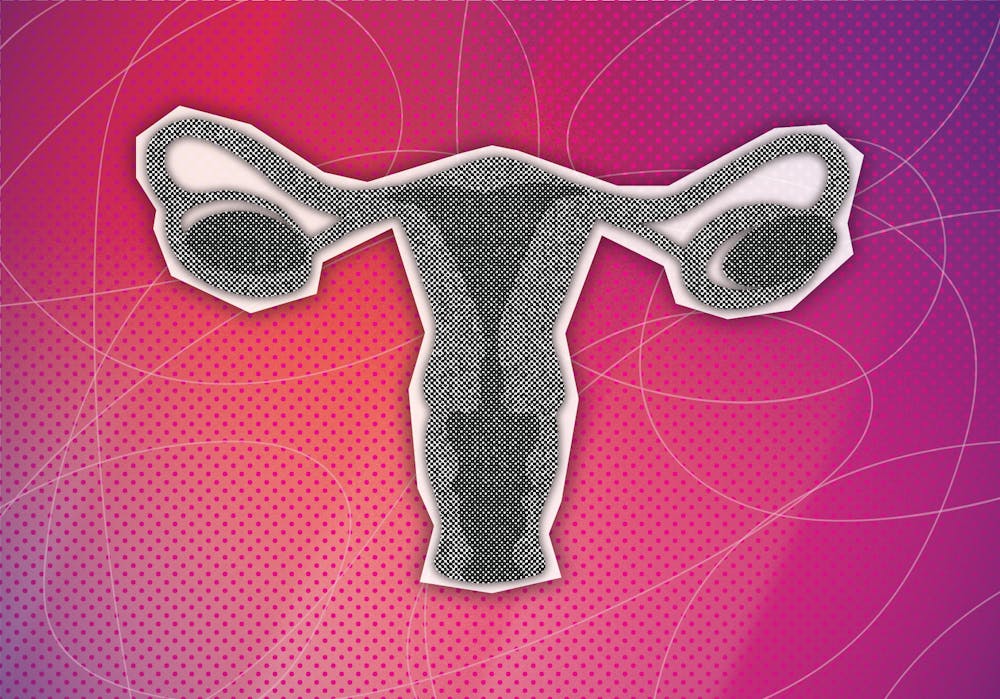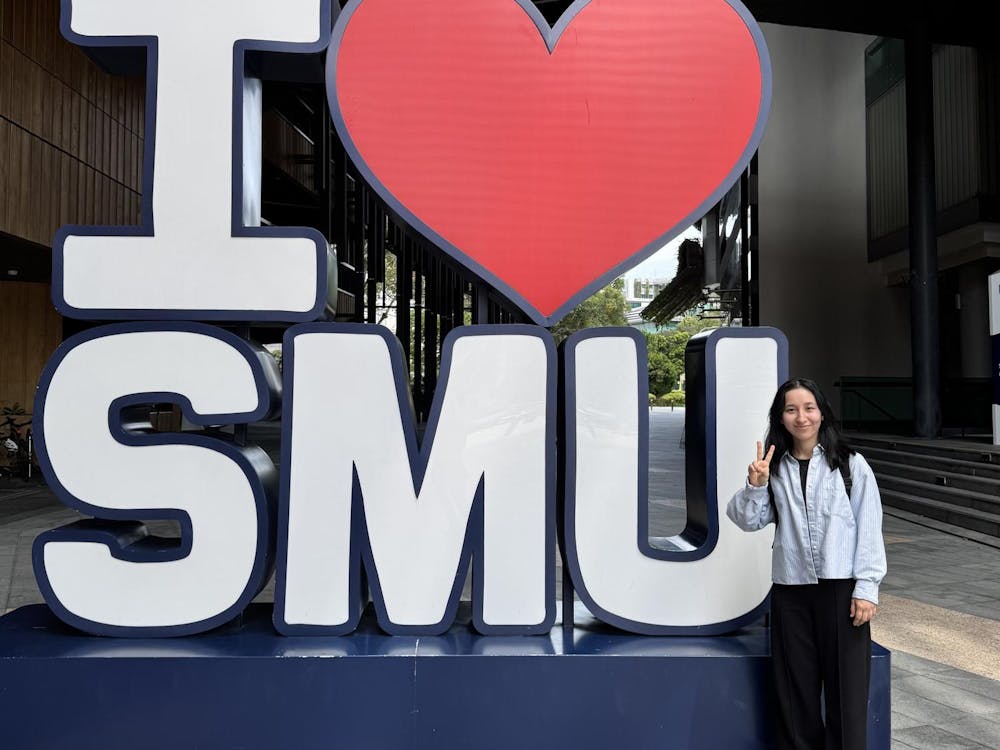In the College of Arts and Science, an academic division in which 65.8% of students are female, the closest thing to a period product in any academic building is typically an empty, rusting dispenser from the 1960s.
The dispenser charges a quarter for tampons that do not exist.
The machine is guarded by a hefty Master Lock, so students will not steal the tampons that … still do not exist.
You can go to Harrison Hall, Upham Hall, Irvin Hall and Bachelor Hall; you will see abandoned dispensers in each bathroom, standing as nothing more than landmarks of a Miami University from 50 years ago.
When nearly two-thirds of students in these academic buildings have periods, why do we lack period products in Miami’s older buildings — especially when other academic buildings on campus demonstrate better models?
In Armstrong Student Center, multiple bathrooms offer Aunt Flow dispensers. Aunt Flow dispensers are modern, rust-resistant, ADA-complaint and regularly stocked with organic pads and tampons.
The machines, which cost $435 for a dispenser and a starter-pack of 500 pads and tampons, take only 30 seconds to restock and only require the push of a button to dispense a menstrual hygiene product. No quarters necessary.
In McGuffey Hall, where nearly 70% of students in the College of Education, Health, and Society are female, period products and other hygiene products are easily accessible. They sit in a basket on the bathroom counter.
This initiative began in 2020 with the Periods Rock! project, which aimed to raise awareness for menstrual hygiene and reproductive health initiatives on campus.
As someone who has been in the highly-stressful situation of starting a period without a period product on-hand — an experience 86% of people who menstruate have had — it was a relief to know I could walk to Armstrong to find a free period product.
Many buildings and departments at our university have done a great job providing menstrual hygiene products, but many more have subpar access.
At a university that is majority-female, we can’t fall to the standard of requiring students to walk across campus to get the products they need. Providing period products in all public restrooms is a low-cost solution that universally benefits the student body.
Enjoy what you're reading?
Signup for our newsletter
Bathrooms are already expected to supply toilet paper and soap. Why should tampons and pads — which ultimately do the most work to prevent biohazardous waste spreading — be any less of a priority?
It is proven that one in five menstruating students have missed school because they did not have the period supplies or resources they needed.
With recent economic inflation making period products even more expensive for students, the university could significantly improve the lives of students by updating its period dispensal system — or even adding period supplies in all vending machines like residence halls do — in its academic buildings.
At Michigan State University, which recently implemented a campus-wide free pad and tampon program in all its women’s and gender-neutral bathrooms, it costs only $50,000 to maintain the program each year: an investment well-worth making.
Improvements to our period supply dispensal system are past-due. It is time to ditch the rusty period dispensers of generations past and move toward a future with universal period product access.
Meredith Perkins is a junior double-majoring in diplomacy and English. Her opinion column was the 2023 recipient of the Ohio News Media Association’s Best Column Writing Award and her opinion writing has been featured in the New York Times, Wall Street Journal, Cincinnati Enquirer and more.




